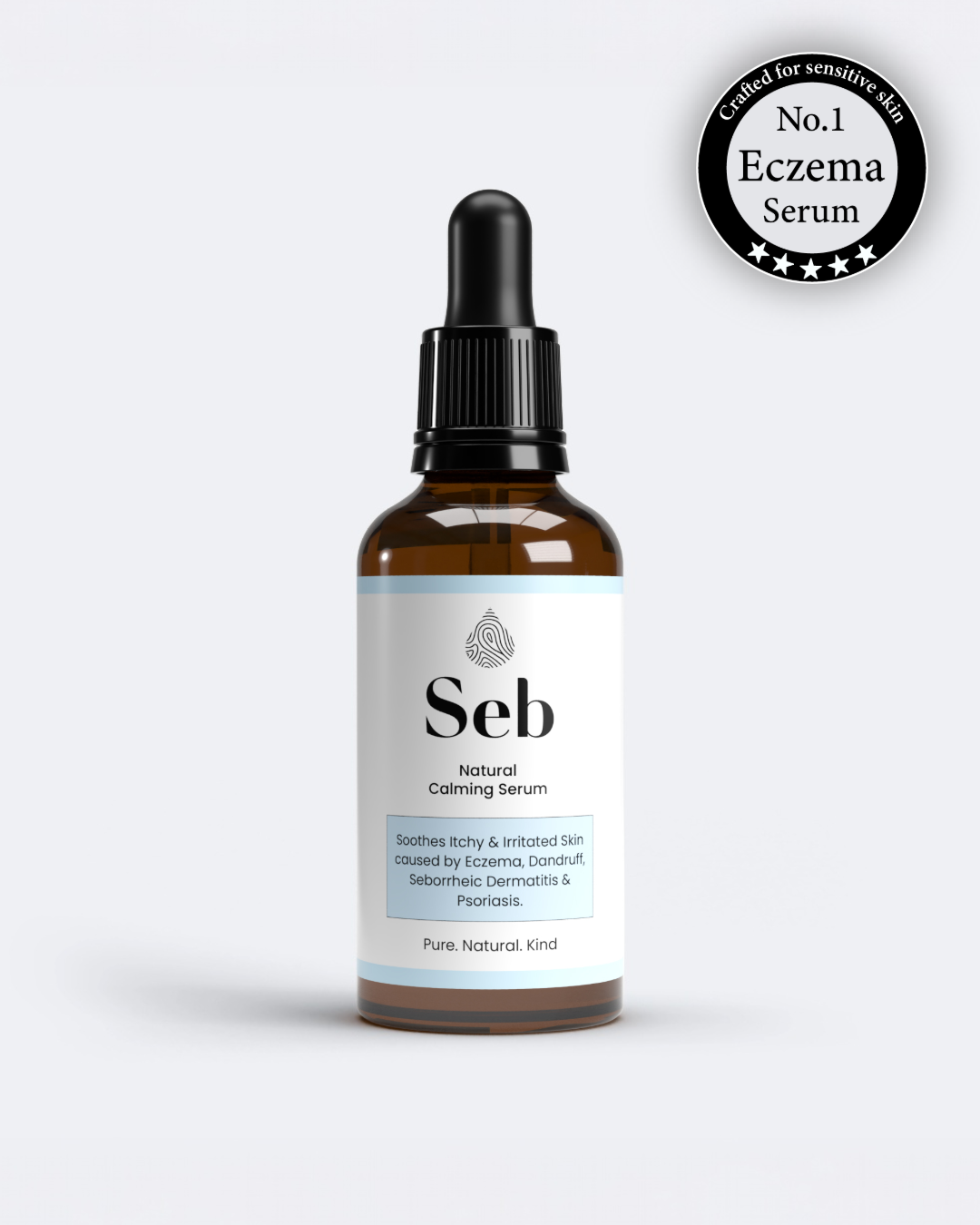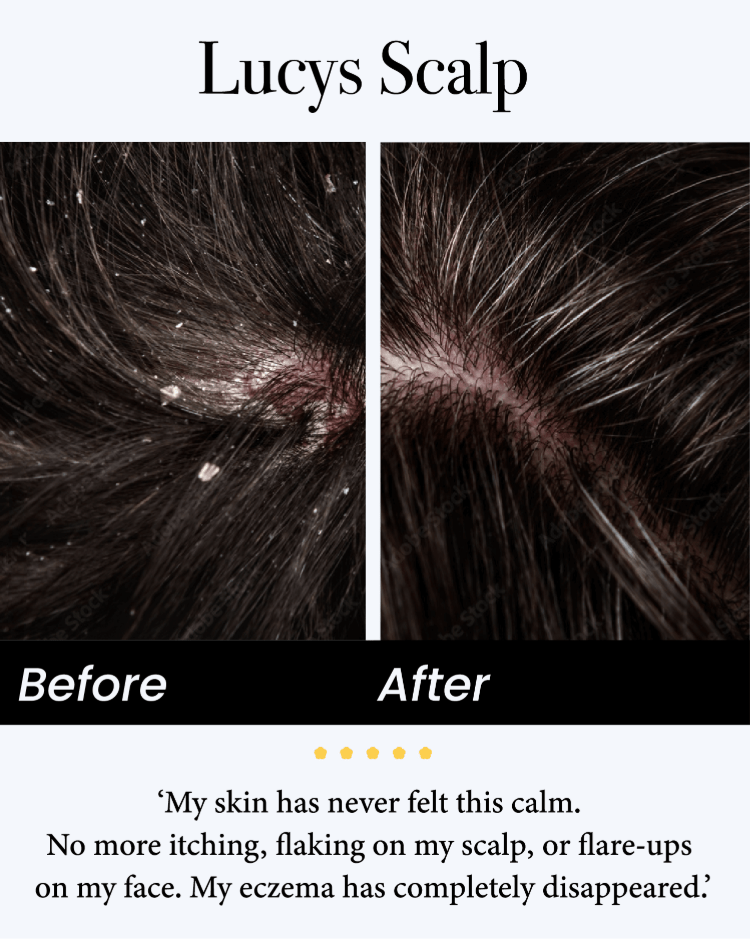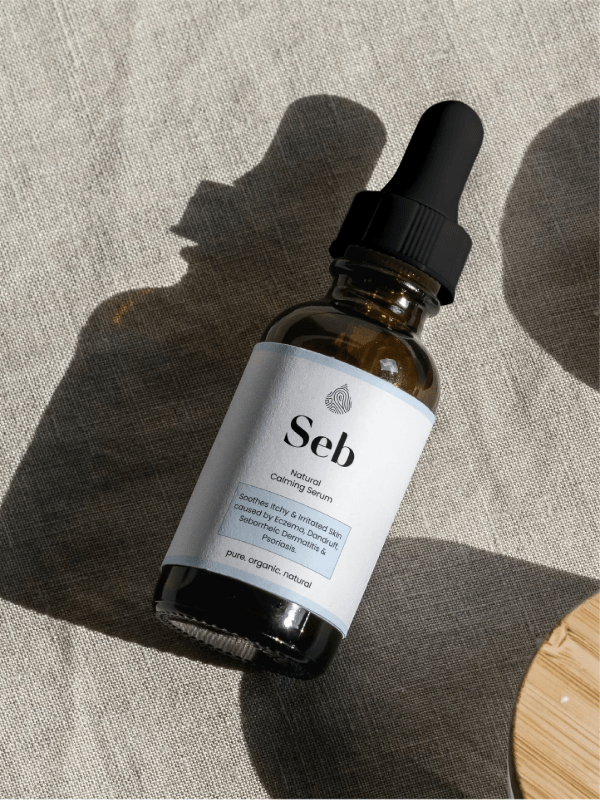
Supporting Skin Health Through Nutrition
Supporting Skin Health Through Nutrition: Dietary Tips for Eczema and Skin Flare-Ups
Eczema is a complex condition influenced by various factors, often involving an overactive immune system reacting to allergens. These triggers can be environmental or dietary, especially in children. While eczema manifests differently for everyone, making thoughtful, gradual dietary adjustments can significantly help manage symptoms.
At Seb, we believe that addressing skin health holistically can yield powerful results. By focusing on nutrition alongside your skincare routine, you can support your body’s ability to reduce inflammation, calm flare-ups, and promote overall well-being. Here’s a guide to understanding the connection between nutrition and skin health.
Nutritional Tips for Eczema Relief
1. Identifying Food Allergies and Intolerances
Food allergies and intolerances are often linked to eczema. While true allergies cause immediate and sometimes severe reactions (e.g., dairy, gluten, peanuts, eggs), food intolerances can be subtler and take time to show their effects.
Keep a Food Diary: Track your meals and note any potential patterns between foods and flare-ups. Common culprits include dairy, yeast, and wheat.
Gut Health and Skin: The gut-brain connection shows that some of your favorite “comfort foods” may actually worsen eczema. By observing patterns in your diet, you might uncover hidden triggers.
Consider Testing: Skin prick tests or food intolerance assessments can help identify specific issues. However, starting with a food diary is a cost-effective and insightful first step.
2. Reduce Inflammation Through Omega-Rich Foods
Eczema is, at its core, an inflammatory condition. Anti-inflammatory foods can play a vital role in soothing flare-ups and improving overall skin health.
Incorporate Nuts and Seeds: Snack on almonds, chia seeds, or walnuts for a boost of essential fats.
Try Supplements: Fish oil (Omega-3) and borage oil (GLA) supplements have been shown to reduce dryness, itchiness, and redness in eczema sufferers.
3. Support Gut Health for Better Skin
The digestive system and immune system are deeply interconnected, often referred to as the “gut-immune axis.” A healthy gut supports a balanced immune response, reducing eczema flare-ups.
Add Probiotics: Foods like yogurt (if you’re not sensitive to dairy), kefir, and fermented vegetables like sauerkraut help maintain gut bacteria balance.
Focus on Fruits and Vegetables: These provide fiber and antioxidants, which are essential for gut health and reducing oxidative stress.
Limit Sugar and Refined Carbs: Excess sugar can disrupt gut health and exacerbate inflammation. Replace sugary snacks with fresh fruit or whole-food alternatives.
A Holistic Approach to Managing Chronic Cases
For individuals with chronic eczema or complex health histories, a tailored approach might be necessary. Consulting with a nutritional therapist can provide personalised guidance to address your unique triggers and needs. Pairing nutrition with complementary therapies like homeopathy, aromatherapy, or mindfulness can also enhance results.
Why Nutrition Matters for Eczema
At Seb, we believe in empowering you with solutions that work from the inside out. Pairing our eczema-calming products with thoughtful dietary choices can help reduce flare-ups, calm irritated skin, and improve your overall quality of life. Remember, everyone’s eczema journey is different, so listen to your body and make gradual, sustainable changes.
By nurturing your skin with the right ingredients—both in your diet and skincare—you can take control of your eczema and rediscover confidence in your skin.









